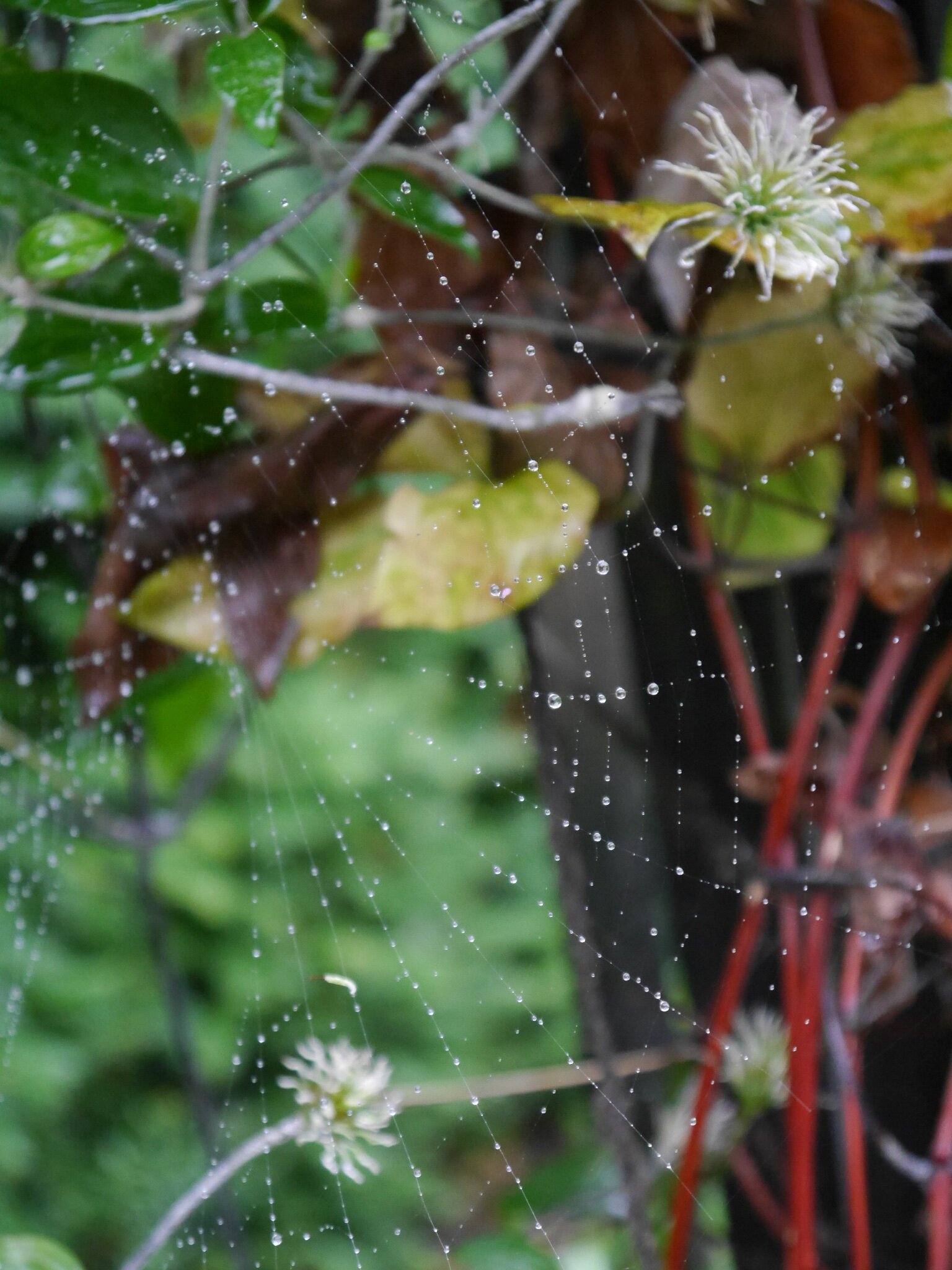Spider Silk
Dark mornings and bright leaves. Apple trees jeweled with red fruit. A yellow school bus impassively blockading already-late-for-work commuters. Before you can say “sweater weather,” Autumn descends on Central Pennsylvania.
In a tradition as seasonal for me as pumpkin spice lattes are to a white woman’s Instagram, I take to my bed.
Living with chronic illness is a strange balancing act at the best of times. You negotiate with your body like a first-time mother with a petulant toddler, trading time for energy, plying it with rest and remedies, whittling down your to-do list to the bare essentials. You may sit in the parking lot in front of the post office, as I did yesterday, and decide you don’t really need stamps as much as you need milk, since it turns out that today it’s an either/or situation. You rejoice if you accomplish one complete task from beginning to end. And you go back to bed.
After enough practice, you and your body come to an understanding. You learn your triggers, you learn your limits. You learn that you can keep going through the slow season, like the tortoise, one plodding step at a time, and maybe you’ll make up some ground when the clouds lift again. How are you? You’re fine. You’re adequate. You have enough of what you need to keep your head above water. That’s a privilege, actually. That’s more than many have.
Once you’ve reached a detente with yourself, there’s only the public to consider.
As any of the many, many people in your life who are also dealing with an invisible illness can tell you, deciding how open to be about your limitations is a dicey proposition. Whether it’s depression and anxiety, chronic fatigue syndrome (ME for the Brits), or any of the raft of available autoimmune diseases, if it can’t be cured with pills, it makes people very uncomfortable. If you find a doctor who believes you, you may have to fend off invasive or habit-forming interventions. Among your friends, there are the Doubters (sample quote, “Oh, so you have Lazy Housewife Syndrome!”) and the Fixers (“I used to get tired too, until I ((became vegan / took vitamins / started using essential oils / joined a gym / went to talk therapy / relied more on prayer))”).
Honestly, it’s hard for me to get uppity about either category, because the same conversations play out in my own head-- am I imagining this? What if everyone feels like this, but they’re strong enough to force themselves through it and you’re just giving up? Surely it’s not normal to feel triumphant when a medical test comes back positive, when there’s tangible, empirical evidence that something really is wrong with you?
All that to say, discretion seems to be the easier path. I’d rather be considered flaky when I cancel plans last minute than watch faces tighten as I awkwardly describe what’s going on in my internal organs. I don’t want illness to be part of my identity (though it is), or a crutch that excuses a failure to be productive (which it also, inevitably, is). I don’t want sympathy, just patience. Just the benefit of the doubt. Most people are willing to give it.
So for me, coming up from my blankets on a bright October afternoon, Autumn is a season of re-learning modesty, of learning to celebrate small accomplishments. Of appreciating the kind words and healing thoughts of true friends who know the score, the texts and phone calls reaching into my burrow like silvery strands of spider silk-- it may look frail, you know, but it has five times the tensile strength of steel. A cup of tea and a few paragraphs in my journal -- that’s quite enough to contend with today. Slow and steady wins the race

